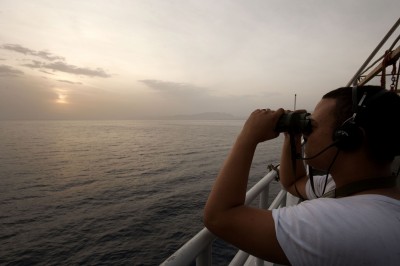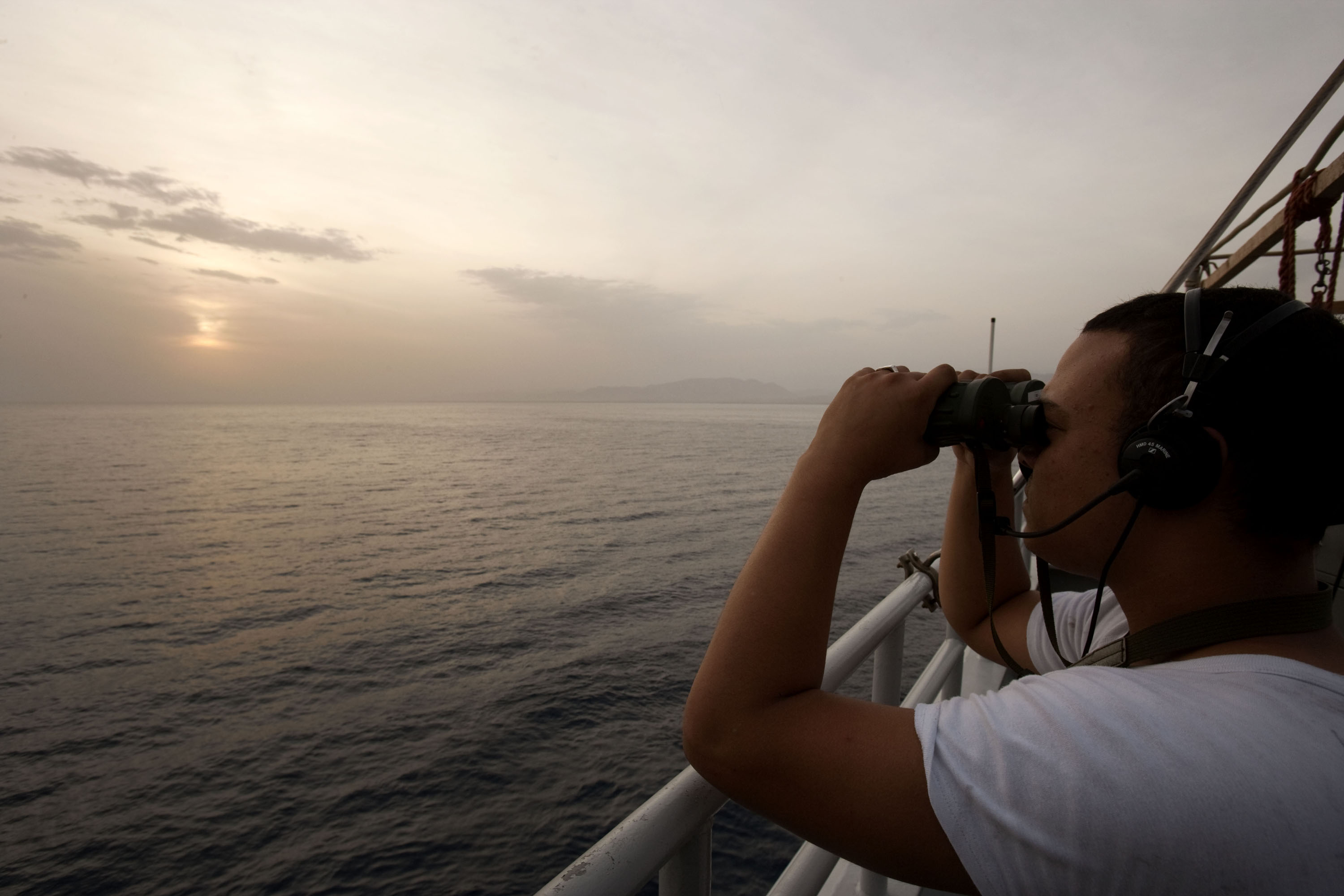Dutch marines aboard merchant transports. A precedent followed by others?
(BRUSSELS2) The Dutch government has authorized, on an exceptional basis, the embarkation of naval protection teams (VPD) on board some of the most vulnerable merchant ships. Hans Hillen, the Minister of Defence, has just informed the parliamentarians. This intervention is done on the basis of an agreement, and following the best practices, given the urgency, he believes. This is to avoid two transports which must use, at the end of March, routes not protected by anti-piracy fleets (EU "Eunavfor", NATO "Ocean Shield" or CTF) but nevertheless dangerous, given the increasing use more efficient mother ships (mostly pirated ships). The Dutch government is also continuing its search for a more systematic solution for placing on board Dutch, military or private guard ships.

Two transports protected by the Marines
Two different transports will thus benefit from increased protection at the end of March. The first includes two Dutch-flagged tugs with a Panamanian-flagged crane vessel, which go from India to the United Arab Emirates (UAE). The second transport consists of a crane vessel flying the Dutch flag which should leave China for the Netherlands, with equipment for wind turbines on board. In the first case, about thirty soldiers will take place in Mumbai until the final destination, Dubai. That is ten days of transit. In the second case, there will be about twenty soldiers who will embark in Singapore and will accompany the ship to Suez (and not Djibouti as envisaged for a moment), that is to say a good twenty days of transit (22 days).
Allocation of responsibilities and costs
An agreement has been concluded between the shipowner and the Ministry of Defense in order to govern the conditions of responsibility or reception on board. The captain of the ship remains responsible for the navigation and operation of the ship, while taking into account the advice of the team leader on board. The State cannot be held responsible for any damage that may result from the action of the team on board. There is also an agreement on the logistical and medical resources that the shipowner must make available to the safety team. The shipowner will have to bear the costs of fitting out the premises of the building requested by the defence, as well as the accommodation and food of the soldiers. The rest of the costs (80.000 euros) resulting from the deployment of these two military security teams will be borne by the Defense budget.
A reflection that continues
This coverage is carried out on an exceptional basis, it is specified on the Dutch side and in application of article 97 of the Constitution which provides for possible intervention to protect the "Kingdom interests". But this is, without a doubt, a change in the policy followed so far. The government itself recognizes that the partial coverage of transport costs in particular constitutes a "precedent". The reflection continues in any case on a more lasting solution. The government plans to table a series of proposals before the Second Chamber by the beginning of April on the response to piracy. A seminar is also to be held on March 18 on cooperation public-private in the prevention of piracy and the use of security guards, military or private, on Dutch ships.And the government is also awaiting recommendations from theAIV (Advisory Council on International Affairs).
Read also:

